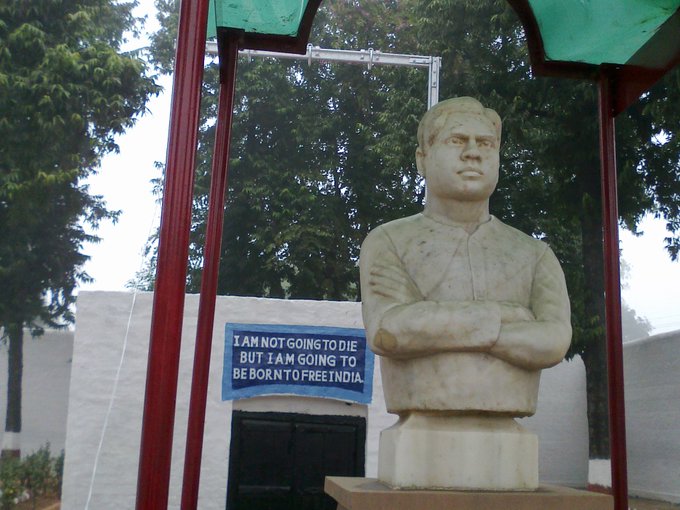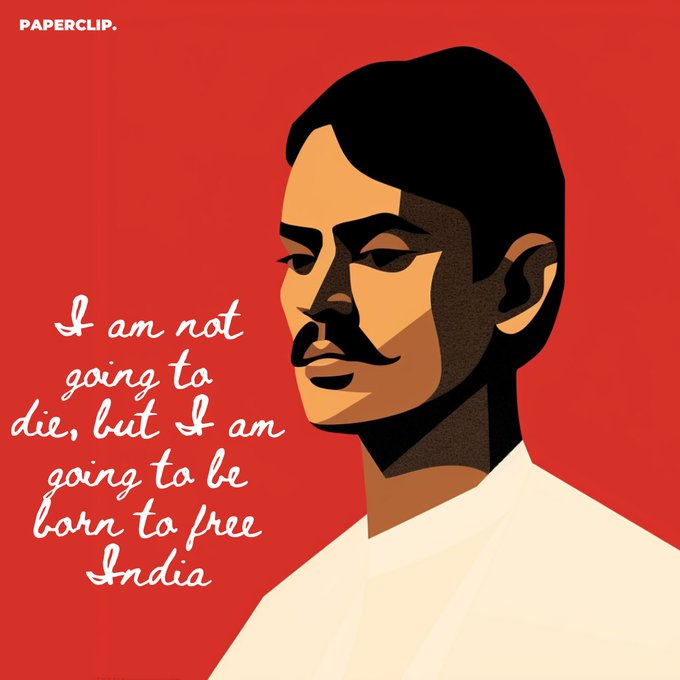In the quiet heart of Uttar Pradesh, where history breathes through rusted iron gates and moss-laced prison walls, a solemn ritual unfolds each year. It’s not a grand spectacle, nor a widely televised event. Yet, for those who gather within the confines of Gonda district jail on December 17, Lahiri Diwas is a sacred invocation—a remembrance of a man whose final breath became a vow to return in a free India.
Rajendranath Lahiri. A name that rarely finds its way into mainstream textbooks, yet one that pulses with the fire of revolution. Born in 1901 in Bengal—now part of Bangladesh—Lahiri’s journey from the banks of the Padma to the revolutionary circles of Varanasi was anything but ordinary. By the age of eight, he had migrated to Varanasi, and by his early twenties, he had become a linchpin in the Hindustan Socialist Republican Association (HSRA), a collective of young radicals who dared to dream of an India unshackled from colonial rule.
The Rebel Beyond the Robbery
Most remember Lahiri for the audacious Kakori train robbery of August 9, 1925. It was he who pulled the chain to halt the train carrying government funds near Lucknow—a symbolic act of defiance against British economic exploitation. But to reduce his legacy to this single event would be to overlook the depth of his convictions and the breadth of his rebellion.
Lahiri was an iconoclast in every sense. He discarded the Brahminical sacred thread, consumed pork and beef, and openly challenged the casteist and communal norms that fractured Indian society. His rebellion wasn’t just political—it was deeply personal, spiritual, and cultural. He saw the fight for independence not merely as a struggle against foreign rule, but as a battle to liberate the Indian soul from centuries of internal bondage.
The Alchemy of Sacrifice
Before Kakori, Lahiri had already mastered the art of bomb-making in Calcutta and had been imprisoned for his role in the Dakshineshwar bomb case. He participated in dacoities across Bamrauli, Shivpuri, and Dwarikapuri—not for personal gain, but to fund the revolution. His actions were calculated, his resolve unwavering.
On April 6, 1927, Judge Hamilton pronounced him guilty. Alongside Ram Prasad Bismil, Roshan Singh, and Ashfaqullah Khan, Lahiri was sentenced to death. His execution was scheduled for December 19, but in a cruel twist, it was advanced to December 17—erasing any hope of reprieve.
Yet, Lahiri remained unshaken.
A Morning of Defiance
On the morning of his hanging, the Jailor found him engaged in his usual physical training.
“Why?” the Jailor asked, bewildered.
“I am not dying today,” Lahiri replied, “I shall be reborn in India to fulfil the unfinished task.”
These words, etched into the records of Gonda District Prison, continue to echo through its corridors. They are not just a declaration—they are a prophecy, a promise, a prayer.
The Quiet Flame of Lahiri Diwas
Today, Lahiri Diwas is more than a remembrance. It is a quiet flame that refuses to be extinguished. Within Gonda jail, authorities and citizens gather annually to honour his sacrifice. Rituals and prayers are followed by the National Anthem, and then, a recital of his immortal lines:
In a letter to his father, Lahiri wrote with serene finality: “I can’t write more from jail.” To his brother, he confided his last wish: “I will chant ‘Vande Mataram.’ Let its echoes reach me beyond these jail walls; only then shall I find solace in death.”
“I am not going to die, but I am going to be born to free India.”

Cultural festivities bloom in this solemn space—songs, speeches, and reflections that carry forward the essence of a man who dared to defy not just an empire, but the very architecture of fear.
A Legacy Beyond Borders
Jogesh Chandra Chatterji, in his book In Search of Freedom, wrote: “He embraced death with a silent dignity, a radiant smile even on the lips of the departed.” Lahiri did not seek clemency. He did not flinch. His death was not an end—it was a beginning.
In remembering Rajendranath Lahiri, we do not merely honour a revolutionary. We honour a vision of unity beyond caste, courage beyond fear, and freedom beyond borders. His story, shrouded in history’s veil, remains potent. And each December 17, in the quiet corners of Gonda, that story is whispered once more—not as a eulogy, but as a call to conscience.
Sources:
- Chatterji, Jogesh Chandra, “In Search Of Freedom”, 1958
- Ghosh, Kali Charan, “The Roll of Honour”, 1965
- Tandon RK, “Hanged for their Patriotism”, 2009
- The Paperclip


Remarkable!
LikeLiked by 1 person
Thanks 🙏
LikeLike
Thanks, Indrajit for such an informative post.
LikeLiked by 1 person
Thanks, Nilanjana.
LikeLike